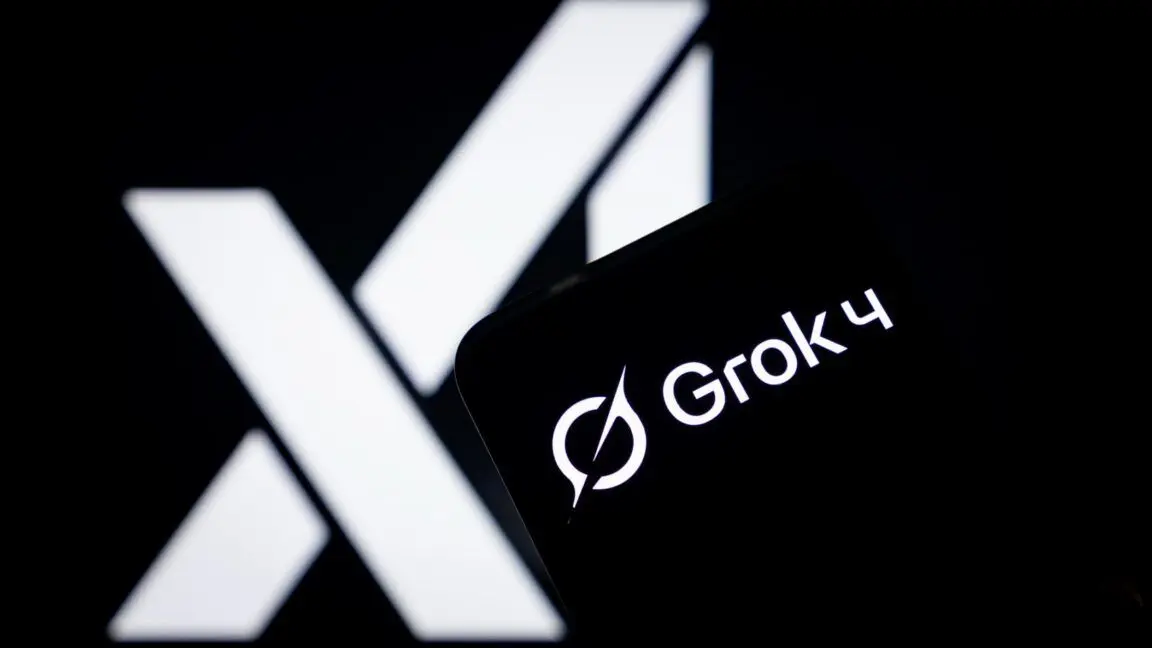TikTok Removes Controversial AI 'Chubby Filter' Amid Body Shaming Concerns
3 Sources
3 Sources
[1]
TikTok Called Out for AI 'Chubby Filter' Critics Say Could Lead to Body Negativity
An AI filter on TikTok has been the subject of criticism, generating its own subset of response videos on the platform. An AI filter on TikTok that allows users to post videos or images of themselves and others as if they gained weight is increasing in popularity even as criticisms and calls for it to be removed grow. The so-called "Chubby filter" has been used on an undetermined number of videos, but there have also been new videos generated criticizing the trend and asking TikTok to remove the filter because it may be damaging to people's body images, especially teenagers. Media outlets are also taking notice. The Cut and The BBC have warned readers about the filter and a writer for Cosmopolitan UK called out the technology, writing, "with filters like this popping up, it seems like the fight against body shaming is still on." A message to TikTok was not immediately returned. The company may have already taken some notice of the trend and created a response. Searching for the filter on TikTok generates a disclaimer at the top of the search results that reads, "You are more than your weight. If you or someone you know has questions about body image, food, or exercise -- it is important to know that help is out there and you are not alone. If you feel comfortable, you can confide in someone you trust or check out the resources below. Please remember to take care of yourselves and each other."
[2]
TikTokers call for 'chubby filter' to be banned
TikTok users have told the BBC they think a viral tool which makes people appear overweight should be banned from the platform. Known as a "chubby filter", the artificial intelligence (AI) tool takes a photo of a person and edits their appearance to look as though they have put on weight. Many people have shared their before and after images on the platform with jokes about how different they look - however others say it is a form of "body shaming" and should not be permitted. Experts have also warned the filter could fuel a "toxic diet culture" online and potentially contribute to eating disorders. TikTok has not responded to a request for comment.
[3]
Videos of AI 'chubby filter' removed from TikTok after critics call out body shaming
TikTok has stopped allowing people to search for videos featuring the use of an artificial intelligence "chubby" filter after users criticized it as a form of body shaming. Participants in the trend used an AI-driven tool, created by a user on the editing app CapCut, to alter themselves to look larger. CapCut and TikTok are both owned by the Chinese company ByteDance. Using Doechii's song "Anxiety" as the background music, participants in the trend would show unaltered versions of themselves before they applied the filter that transformed them into bigger bodies. Some of the videos have gotten millions of views. While some commenters said they found the trend funny, others said it perpetuates fatphobia and stigmatizes weight gain. "There's an amaaazing new trend on TikTok where skinny girls use a filter to become 'chubby' and laugh laugh at the results and everyone else laughs and it's sooooooo funny and we definitely aren't spiralling back down to pro ana death to fats era that damages every young woman," an X user wrote in a post that got more than 2.9 million views. A spokesperson for TikTok confirmed on Tuesday that the filter had been removed by CapCut. The platform is reviewing videos that have used the filter to make them ineligible for recommendation. In its Community Guidelines, TikTok says it does "not allow showing or promoting disordered eating and dangerous weight loss behaviors, or facilitating the trade or marketing of weight loss or muscle gain products." The outcry over the "chubby" filter coincides with greater concerns from people online that society has moved away from body positivity, a movement centered on self-acceptance regardless of body type. Over the years, other weight-loss-related TikTok trends -- including one in which people posted pretend "before and after" weight loss photos and another in which people used the "bloated" filter -- have generated similar negative responses. Other filters that modify people's faces or bodies have also sparked debate over how they could contribute to body dysphoria or self-esteem problems. In the past year, influencers who are known for championing body positivity have noticed an alarming return to "thinness" as the norm. In its 2025 spring/summer size inclusivity report, Vogue Business wrote that "progress has stalled and we are facing a worrying return to using extremely thin models, amid the Ozempic boom," referring to using the popular drug semaglutide for weight loss. Recent research has pointed to potential risks of social media when it comes to young women and body image. Users of social media apps like TikTok, Instagram and Snapchat continue to grapple with body issues and eating disorders. While unhealthy beauty standards in the media have been an issue for decades, critics of social media apps argue they aren't doing enough to protect younger users. A study published in August found that women who spend time on TikTok are at a greater risk of disliking their bodies and feeling worse about their appearance. The study found that the women surveyed had negative body reactions after as little as 10 minutes viewing content on TikTok. "One of the saddest realities to me is that the blunt nature of the algorithm is such that searching for body positivity content may result in users being exposed to pro-anorexia content," Rachel Hogg, a senior lecturer in the School of Psychology at Australia's Charles Sturt University who co-authored the study, said in an email at the time. In November, TikTok blocked teenage users from using certain beauty filters after it commissioned a report that found young people could be affected by filters that change their appearance. As of Tuesday, when TikTok users search for videos with the chubby filter, they are met with a "no results found" page. Trying to use the filter on CapCut also leads to an error message. "The phrase may be associated with behavior or content that violates our guidelines," the message from TikTok reads. "Promoting a safe and positive experience is TikTok's top priority." Previously, according to CNET, users were met with a disclaimer at the top of the search results that read: "You are more than your weight. If you or someone you know has questions about body image, food, or exercise -- it is important to know that help is out there and you are not alone. If you feel comfortable, you can confide in someone you trust or check out the resources below. Please remember to take care of yourselves and each other."
Share
Share
Copy Link
TikTok has removed the AI-powered 'chubby filter' after widespread criticism of its potential to promote body negativity and contribute to eating disorders, especially among young users.

AI 'Chubby Filter' Sparks Controversy on TikTok
TikTok, the popular social media platform, has found itself at the center of a heated debate over body image and AI technology. The platform recently removed a controversial AI-powered "chubby filter" after facing widespread criticism and concerns about its potential to promote body negativity, especially among younger users
1
2
3
.The Rise and Fall of the 'Chubby Filter'
The filter, created by a user on the ByteDance-owned editing app CapCut, allowed users to alter their appearance to look as if they had gained weight. The trend gained traction on TikTok, with participants using Doechii's song "Anxiety" as background music to showcase before and after versions of themselves
3
. While some users found the trend amusing, it quickly drew criticism for perpetuating fatphobia and stigmatizing weight gain.Criticism and Concerns
Critics argued that the filter could be damaging to people's body image, particularly teenagers. Experts warned that it could fuel a "toxic diet culture" online and potentially contribute to eating disorders
2
. The outcry coincided with broader concerns about a perceived shift away from body positivity in society3
.TikTok's Response
In response to the growing controversy, TikTok took action:
- Removed the filter: The platform stopped allowing searches for videos featuring the "chubby filter"
3
. - Content review: TikTok is reviewing videos that used the filter to make them ineligible for recommendation
3
. - Warning message: Prior to removal, searches for the filter displayed a disclaimer about body image and available resources
1
.
Related Stories
Broader Implications for Social Media and Body Image
This incident highlights ongoing concerns about the impact of social media on body image and self-esteem:
- Research findings: A recent study found that women who spend time on TikTok are at greater risk of disliking their bodies, with negative effects observed after just 10 minutes of viewing content
3
. - Algorithm concerns: Experts worry that searching for body positivity content may inadvertently expose users to pro-anorexia content due to the nature of recommendation algorithms
3
. - Industry trends: The controversy comes amid observations of a potential return to "thinness" as a beauty norm in fashion and media
3
.
TikTok's Ongoing Efforts
This is not the first time TikTok has addressed concerns related to body image and filters:
- Beauty filter restrictions: In November, TikTok blocked teenage users from using certain beauty filters following a commissioned report on their potential effects
3
. - Community guidelines: The platform prohibits content that promotes disordered eating, dangerous weight loss behaviors, or facilitates the trade of weight loss products
3
.
As social media platforms continue to grapple with the complex interplay between technology, user behavior, and mental health, incidents like the "chubby filter" controversy serve as important reminders of the need for ongoing vigilance and responsible innovation in the digital space.
References
Summarized by
Navi
Related Stories
Recent Highlights
1
ByteDance Faces Hollywood Backlash After Seedance 2.0 Creates Unauthorized Celebrity Deepfakes
Technology

2
Microsoft AI chief predicts artificial intelligence will automate most white-collar jobs in 18 months
Business and Economy

3
Google reports state-sponsored hackers exploit Gemini AI across all stages of cyberattacks
Technology








